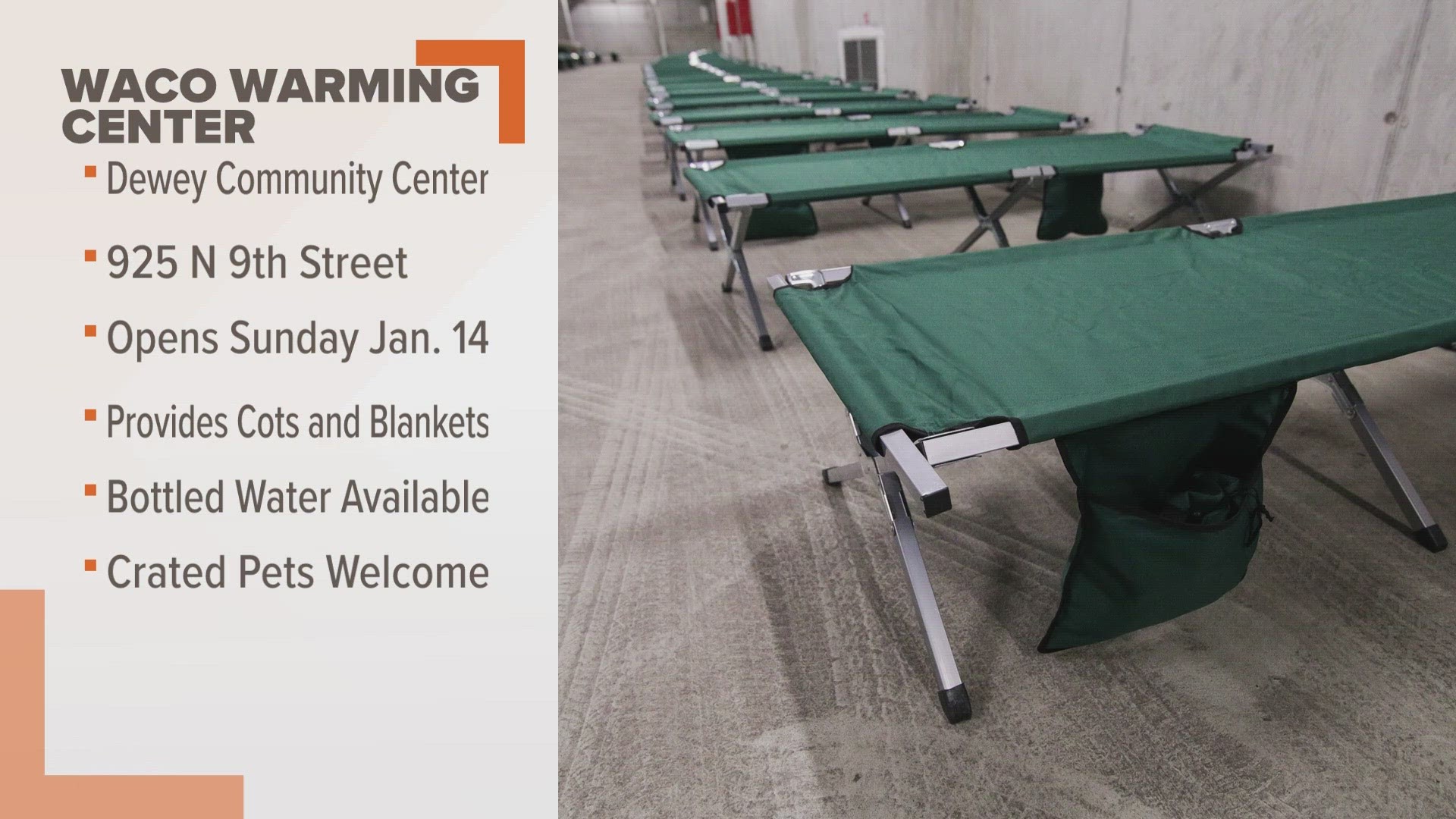TEMPLE, Texas — As Central Texas prepares for an arctic blast, which is expected to hit on Saturday, Jan. 13, it's important to think about ways we can protect ourselves, the ones we love and our pets at home.
Temperatures are expected to drop below freezing numerous times while the artic blast moves through, making it very dangerous for furry friends that may be accustomed to staying outdoors.
6 News Reporter Meredith Haas spoke with the Waco Humane Society to learn more about protecting animals when the weather gets too cold to bear.
The Humane Society says the main thing to remember is that if it's too cold for you, then it's too cold for your pets, so bring them inside. If you are unable to bring them in, you want to make sure they are never facing North winds. Theses winds are most likely to be the strongest, so it's best to keep them away from it.
It's also imperative that pets have blankets or even straw as it warms them up, but doesn't hold much moisture.
A Waco nonprofit, Cribs for Canines, is hosting a free "Straw Drop" on Saturday, Jan. 13 from 4 p.m. to 6 p.m. Those looking to take advantage can pull their car up in a drive-thru style line and get loaded up with straw. There is a one bag of straw per two dog houses limit and it will go until supplies last.
You can stop at any of the following five locations to pick up some straw:
- Player Bail Bond at 1515 W Waco Dr.
- LaVega Vet at 555 E Loop 340 in Bellmead
- Falls County Sheriff's Office
- Hewitt Police Department at 100 Patriot Ct.
- HSCT at 2032 Circle Rd in Waco
The Humane Society also adds that you should check the hood of your car by tapping it a few times to make sure no cats are in there searching for heat. Lastly, they say if you are using heat lamps, use luminescent lights and not the ones with bulbs.
Now, when looking at how to protect ourselves, it's important to recognize symptoms of cold-related illnesses.
One Illness that just about everyone has heard of is hypothermia. According to the Center for Disease Control (CDC), this happens when you are exposed to cold temperatures for too long and your body uses up all of its stored energy. Early symptoms can include shivering, fatigue, loss of coordination, confusion. These may turn into more severe symptoms such as blue skin, dilated pupils, slowed pulse and loss of consciousness.
Another one of these illnesses includes frostbite, an injury to the body that could leave permanent damage or cause amputations. According to the CDC, frostbite most often affects the nose, ears, cheeks, chin, fingers or toes first. Symptoms include reduced blood flow to hands and feet, numbness, tingling or stinging and aching.
Also on KCENTV.com:

